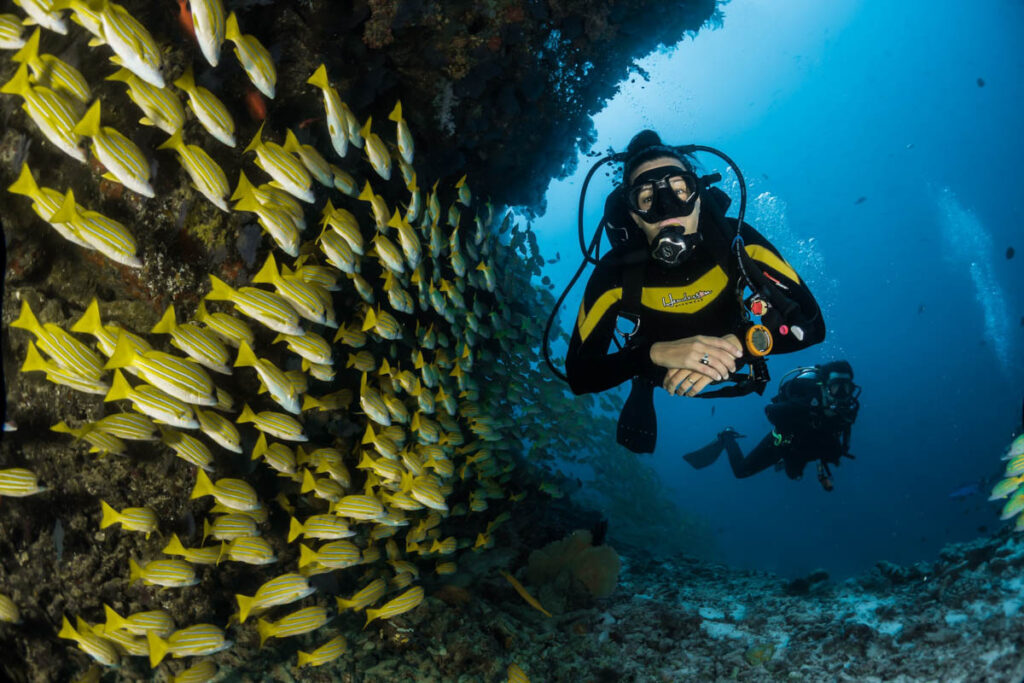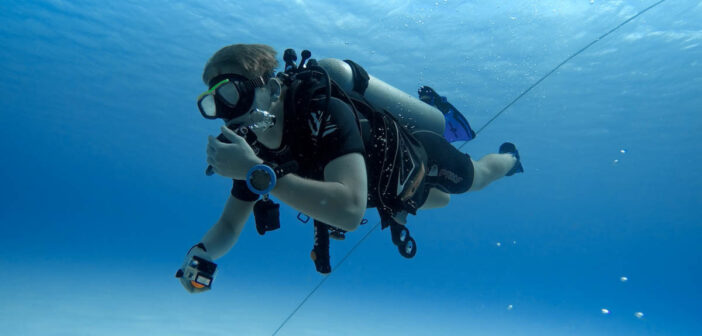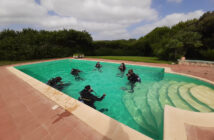Embarking on a scuba diving adventure is an exhilarating experience, offering a glimpse into the mesmerizing world beneath the waves. However, like any new pursuit, scuba diving comes with its own set of challenges and potential pitfalls. In this article, we’ll explore five common mistakes that new divers often make and provide valuable insights on how to avoid them, ensuring a safer and more enjoyable diving experience.

- Neglecting Proper Training: One of the gravest mistakes new divers can make is to underestimate the importance of thorough training. Scuba diving is a skill-intensive activity that requires proper instruction and certification. Some beginners may be tempted to skip or rush through the certification process, but this can be extremely dangerous. Without adequate training, divers may lack essential knowledge on equipment operation, safety protocols, and emergency procedures, putting themselves and others at risk. To avoid this mistake, invest in comprehensive training from reputable diving organizations such as PADI, NAUI, or SSI. Take your time to master the necessary skills under the guidance of certified instructors before venturing into open water.
- Ignoring Dive Planning and Preparation: Another common mistake new divers make is failing to adequately plan and prepare for their dives. Proper dive planning involves assessing factors such as weather conditions, water currents, dive site characteristics, and potential hazards. Neglecting these considerations can lead to unexpected challenges or emergencies underwater. Additionally, overlooking equipment checks and maintenance can result in malfunctioning gear, posing serious safety threats. To avoid this mistake, always conduct thorough pre-dive checks, adhere to dive plans, and stay informed about local diving conditions. Regularly inspect and maintain your diving equipment to ensure optimal performance and reliability.
- Descending Too Quickly: Many novice divers make the error of descending too rapidly, eager to explore the underwater world without taking sufficient time to equalize and acclimate to changes in pressure. Rapid descents can cause barotrauma injuries to the ears, sinuses, or lungs, leading to discomfort, pain, and potentially severe complications. To prevent barotrauma and equalization issues, descend slowly at a controlled pace, equalizing your ears and sinuses frequently as you go deeper. Practice proper equalization techniques such as swallowing, yawning, or gently blowing through your nose to equalize pressure in your air spaces. If you experience difficulty equalizing, ascend slightly and try again until you achieve relief.
- Overexertion and Poor Buoyancy Control: New divers often struggle with buoyancy control, leading to overexertion and unintentional damage to marine ecosystems. Poor buoyancy control can result in inadvertent contact with fragile corals or disturbing sediment, causing harm to marine life and compromising visibility. Additionally, excessive kicking or flailing can deplete air supply more rapidly, shortening dive times and increasing the risk of gas-related accidents. To improve buoyancy control, practice proper weighting, trim, and finning techniques during training sessions. Focus on maintaining a streamlined body position and using gentle, efficient movements to navigate underwater. Avoid touching or disturbing marine organisms, and strive to leave the underwater environment undisturbed.
- Ignoring Dive Limits and Safety Protocols: Lastly, new divers may fall into the trap of disregarding dive limits and safety protocols in pursuit of excitement or exploration. Exceeding depth or time limits, diving without a buddy, or neglecting to perform safety stops can result in decompression sickness, nitrogen narcosis, or other diving-related injuries. It’s crucial for divers to respect their training, adhere to established dive limits, and prioritize safety above all else. Always dive within your certification level and follow the “buddy system” to ensure mutual support and assistance in case of emergencies. Remember to monitor your air supply, bottom time, and depth throughout the dive, and ascend gradually while observing recommended safety stops.

Scuba diving offers unparalleled opportunities for adventure and discovery, but it also demands respect, responsibility, and a commitment to safety. By avoiding these common mistakes and embracing proper training, preparation, and diving practices, newcomers can enhance their diving skills, confidence, and enjoyment while safeguarding their well-being and the marine environment.
Remember: Dive smart, dive safe, and dive responsibly for a lifetime of underwater exploration and wonder.








